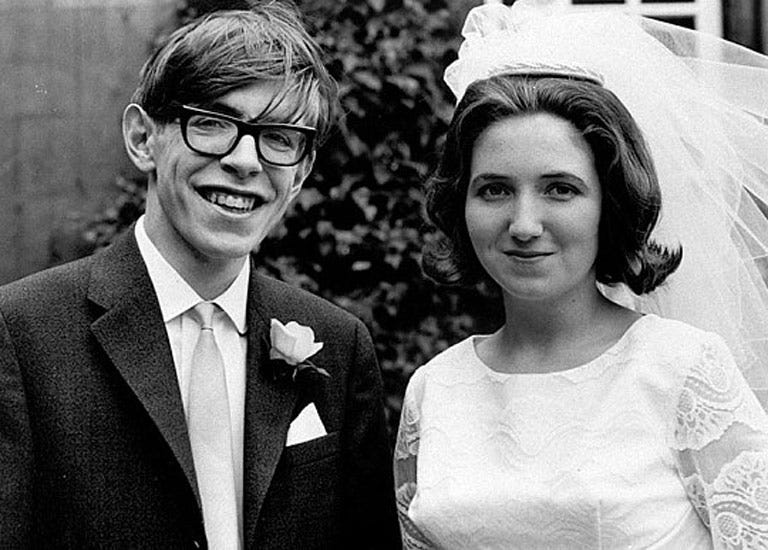
Individual & Society

Introduction
Expert power is having the knowledge to influence others within any subject. A pertinent example is a scientist who, as stated by encyclopedia Britannica, accomplished incredible feats such as theorizing “exploding black holes drawing upon both relativity, theory, and quantum mechanics” (Encyclopedia Britannica). The scientist who achieved this feat was theoretical physicist, Stephen Hawking. Born January 8, 1942, in Oxford, United Kingdom, Hawking began his academic career at University College, Oxford; then went on to study physics at Cambridge. After his 21st birthday, Stephen Hawking was admitted to Guy’s Hospital, London for motor neuron disease also known as ALS. After receiving a doctorate in physics, Hawking, “was elected a research fellow at Gonville and Caius College at Cambridge” (“Prize Recipient”). Theoretical scientist, author, and professor, Stephen Hawking used his expertise to lead the scientific community, educate the youth about STEM fields and represent as an advocate for ALS.
Contributions and Impact
Stephen Hawking’s contributions to the scientific community were revolutionary for cosmologists and physicists. His theoretical work was avant-garde regarding black holes. For example, the University of Cambridge states the development of the informational paradox. “a fundamental conflict between quantum mechanics and our understanding of gravitational physics” (“Professor Stephen Hawking 1942-2018”). As a leader, Hawking developed a path for the scientists of today looking for “One single unifying equation that explains everything in the universe” (The Theory of Everything 00:03:52). Today, many physicists argue that from Hawking’s research on black holes, “Hawking radiation” seems to be the only clue to solving the greatest mysteries of theoretical physics (Specktor). Stephen Hawking’s legacy trailblazes the future of the scientific community.
It can be argued that Hawking pioneered the future of physics, his work possesses an everlasting effect on all. Hawking sold millions of books which led his work to be accessible to anyone. Hawking used his extensive knowledge of physics to provide for the younger generation. He authored many books such as A Brief History of Time, and George’s Secret Key to the Universe. Stephen Hawking inspired thousands of children worldwide to pursue careers in STEM fields. He advised many students to study theoretical physics as this would increase the number of scientists in the future. Using expert power, Hawking utilized his education to become a professor at the University of Cambridge, “because their followers view them as highly competent or considerate” (Northouse). The University of Cambridge recognized Stephen Hawking excelled which earned him his title. “Lucasian Professor of Mathematics”. He also was the “Founder of the Centre for Theoretical Cosmology” (Underhill). This title was held by many such as Isaac Newton, George Stokes, and others.
Hawking was informed that his life expectancy would be cut short due to his diagnosis of ALS, but despite his movements being limited, Hawking pushed through. He received his PhD for his thesis “Properties of Expanding Universes” which was released to the public in October 2017 on the Cambridge University website. Hawking was assisted by supportive technology, for example “He used a thumb switch and a blink-switch attached to his glasses to control his computer” (Dr. Stephen Hawking). Stephen Hawking did not back down due to his limitations, as a leader, he persevered. He set the stage inspiring those to come after him, promoting as a disabled but honorable scientist.
Conclusion
In many ways, Stephen Hawking continues to influence our world. Hawking utilized his knowledge and expertise to lead the scientific community, whilst benefiting the younger generation towards STEM fields and his displaying advocacy for ALS. Hawking’s devotion to the cosmos is understood when the power of his expertise is previewed.
Citations
The Editors of Encyclopedia Britannica. “Stephen Hawking | Facts, Biography, & Theories.” Encyclopedia Britannica, 24 Jan. 2019, www.britannica.com/biography/Stephen-Hawking.
“Stephen Hawking.” Www.hawking.org.uk, www.hawking.org.uk/biography.
“Prize Recipient.” Www.aps.org, www.aps.org/programs/honors/prizes/prizerecipient.cfm?first_nm=Stephen&last_nm=Hawking&year=1999#:~:text=He%20was%20elected%20a%20research. Accessed 2 Oct. 2023.
“Professor Stephen Hawking 1942-2018.” University of Cambridge, 14 Mar. 2018, www.cam.ac.uk/news/professor-stephen-hawking-1942-2018#:~:text=He%20also%20realised%20that%20black. Accessed 3 Oct. 2023.
Marsh, James. The Theory of Everything. Focus Features, 2014
Specktor, Brandon. “How Stephen Hawking Transformed Humanity’s View of the Universe.” Live Science, Live Science, 14 Mar. 2018, www.livescience.com/62017-stephen-hawking-legacy.html.
Underhill, Oscar. “Prof. Hawking.” The Stephen Hawking Foundation, stephenhawkingfoundation.org/professor-hawking/.
Northouse, Peter. Leadership: Theory and Practice. 9th ed., Los Angeles, Sage Publications, 2021.
“Dr. Stephen Hawking: A Case Study on Using Technology to Communicate with the World.” Dr. Stephen Hawking: A Case Study on Using Technology to Communicate with the World | AccessComputing, www.washington.edu/accesscomputing/dr-stephen-hawking-case-study-using-technology-communicate-world. Accessed 3 Oct. 2023.


